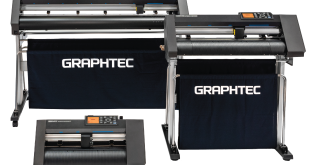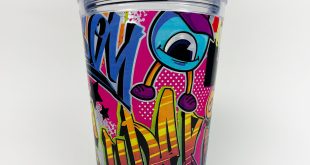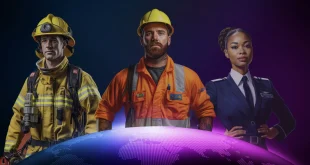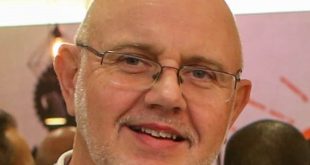
P&P editor Melanie Attlesey spoke to Mike Carden of Balmoral Knitwear, Charles Horton of Charles Kirk and Dan Turner of William Turner to gain an insight into their UK manufacturing set-up.
Q. So, first of all where in the country do you manufacture?
Mike Carden: Balmoral Knitwear’s UK manufacturing is in Ayshire in Scotland.
Charles Horton: Charles Kirk’s factory can be found the south coast in Worthing, West Sussex.
Dan Turner: William Turner has been based in the north of England since we started in 1969. Our factories are in Skipton and Colne. We’ll be moving from our Colne factory to a larger facility in Nelson, Lancashire in January. We have invested £900,000 in this new facility with the aim of being able to make more ties, which in turn will bring down lead times for our customers.
Q. How big is your facility? How many staff do you employ?
MC: Balmoral has about 50 staff and has capacity to knit about 2,000 garments per week.
CH: Our facility measures 30,000sq ft and we currently employ 61 staff.
DT: In total we employ 125 people, with 75 of those in manufacturing roles. In total our factories covers 20,000 sq ft.
Q. What garments do you manufacture?
MC: Pullovers, cardigans, scarves and hats for schoolwear, corporatewear, promotions, cricket and retail.
CH: We are proud to be one of the few schoolwear suppliers that still manufacture in the UK, specialising in knitwear, sweatshirts and accessories such as hats and scarves, for schools, colleges and nurseries.
In the last year we have also worked closely with an up and coming fashion designer on knitted pullovers and cardigans, to add to her collection of tulle dresses and skirts, as well as working on knitwear with a top designer who has recently returned to the fashion scene with a new range. We are also looking to produce our own small fashion knitwear range for adults and children in natural fibres. We hope to grow this production slowly while continuing to service our core schoolwear market to our usual high standard.
DT: We make ties, scarves, badges and wool wraps for schools, clubs, businesses and universities. We’re proud to have supplied a wide range of customers, from the independent school uniform retailers to some of the top sports clubs in the world.
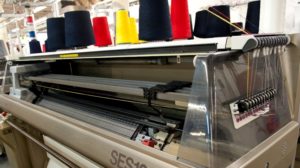
Q. How long have you been manufacturing in the UK?
MC: The factory has been on the same site since the 1890s.
CH: We have been manufacturing in the south of England for over 75 years.
Founded by Charles Kirk in Marylebone, London on November 10, 1939, Charles Kirk began as a ladies blouse manufacturer, designing and manufacturing the latest fashions. Today, Charles Kirk is a schoolwear specialist in the manufacturing, supply and embroidery and printing of knitwear, sweatshirts and accessories and has been run by the Horton family for over 60 years.
DT: 48 years!
Q. Do you think decorators want garments that are manufactured in the UK?
MC: It varies, of course. There are certainly decorators whose customers value and sometimes specify UK-made. Others require something that cannot easily be obtained from off-shore, such as small and medium-sized bespoke orders or short lead-time bespoke orders. Much of our UK production is for these types of markets, especially in schoolwear and corporatewear. Quality is also a major factor – we use the highest quality European-spun yarns, and these are not often found in garments made in the Far East, for example.
CH: Yes, for made to order garments that require a shorter lead time than an overseas garment and also special measures.
DT: I think it’s become increasingly more important yes, but price remains to be a strong focus.
Q. Do you think the Rana Plaza collapse in Bangladesh in 2013 changed attitudes towards manufacturing overseas?
MC: We have certainly found that there has been renewed in interest in bringing supply closer to home.
CH: Not really but we do think that larger companies are more rigorous in their inspections now. The cost of standard goods from overseas is so much cheaper, that most people are interested in price rather than provenance.
DT: I think it has certainly made people sit up and take note that if something appears too cheap, then there is probably a reason why.
Q. Why do you choose to manufacture in the UK? What benefits do you see to manufacturing in the UK?
MC: Short lead-times, low minimum orders, high quality.
CH: We believe by continuing to manufacture here in Worthing, we are helping the UK in creating much needed employment, contributing to the growth of the national economy and reducing carbon emissions.
DT: There are lots of reasons why we choose to continue to manufacture William Turner products in the UK. A strong benefit is that we have consistency in our products, we believe in supporting our local communities through employment opportunities, being in the UK enables us to offer better lead times than offshore and the communication is easier. Our factories, warehouse and offices are all within a short driving distance of each other so visits to locations are simple and overseeing production is a lot more straightforward.
Q. Do you see manufacturing in the UK as a great selling point?
MC: We certainly use it as a selling point, although lower prices with off-shore product very often tip the balance away from UK manufacture of course, which is why we offer both solutions.
CH: We recognise that British made products can cost more, but we believe that some consumers are becoming more aware that this does not mean necessarily less value for money. There is value in good quality which increases the garment life and value in lowering carbon emissions.
DT: Yes, certainly when discussing quality, control and a quick turnaround.

Q. How do you view the state of the UK garment manufacturing industry at the moment?
MC: Clearly mixed. Some manufacturers have found niches where they can survive and prosper. Others are struggling on price against off-shore competition. It’s certainly not easy for any UK garment manufacturer.
CH: The industry has been in decline for many years due to the impact of imported goods. However with the growth in internet selling and the desire by the consumer for quick response to fashion trends and short runs so that not everyone is wearing the same garment, the industry slowdown is tapering off and hopefully will slowly increase again.
DT: We see the UK textiles manufacturing sector as growing in confidence, and as offshore prices rise the differential between UK and offshore is coming down especially for small runs and bespoke added value items.
Q. Has Brexit or the current political landscape had much effect on business?
MC: Very little so far, I would say. It all depends on what deals are done with Europe and elsewhere.
CH: The volatility and decline of the British pound against the Euro and the US Dollar due to Brexit and the recent political instability has caused increased costs for imported finished garments and also raw materials. This has improved demand for British made products but there is little infrastructure left within the textile industry to gear up quickly to take advantage of this.
DT: Our sales post the Brexit decision have been just as buoyant than prior to.
Q. Is there anything else about UK manufacturing that you feel is important?
MC: As a general point regarding UK PLC, I think it is important that Britain keeps a manufacturing base. Britain also has a great heritage in textiles and it would be a great shame if that were eroded even further.
CH: The textile industry provides both skilled and unskilled employment and not all school leavers have the academic qualification or the inclination to pursue higher education. The garment industry can be a good starting point in the world of work and young people can progress to all levels within a company.
DT: I think export is important to UK manufacturing, we’re seeing more and more business coming from overseas than ever before.
 Printwear & Promotion The Total Promotional Package
Printwear & Promotion The Total Promotional Package
